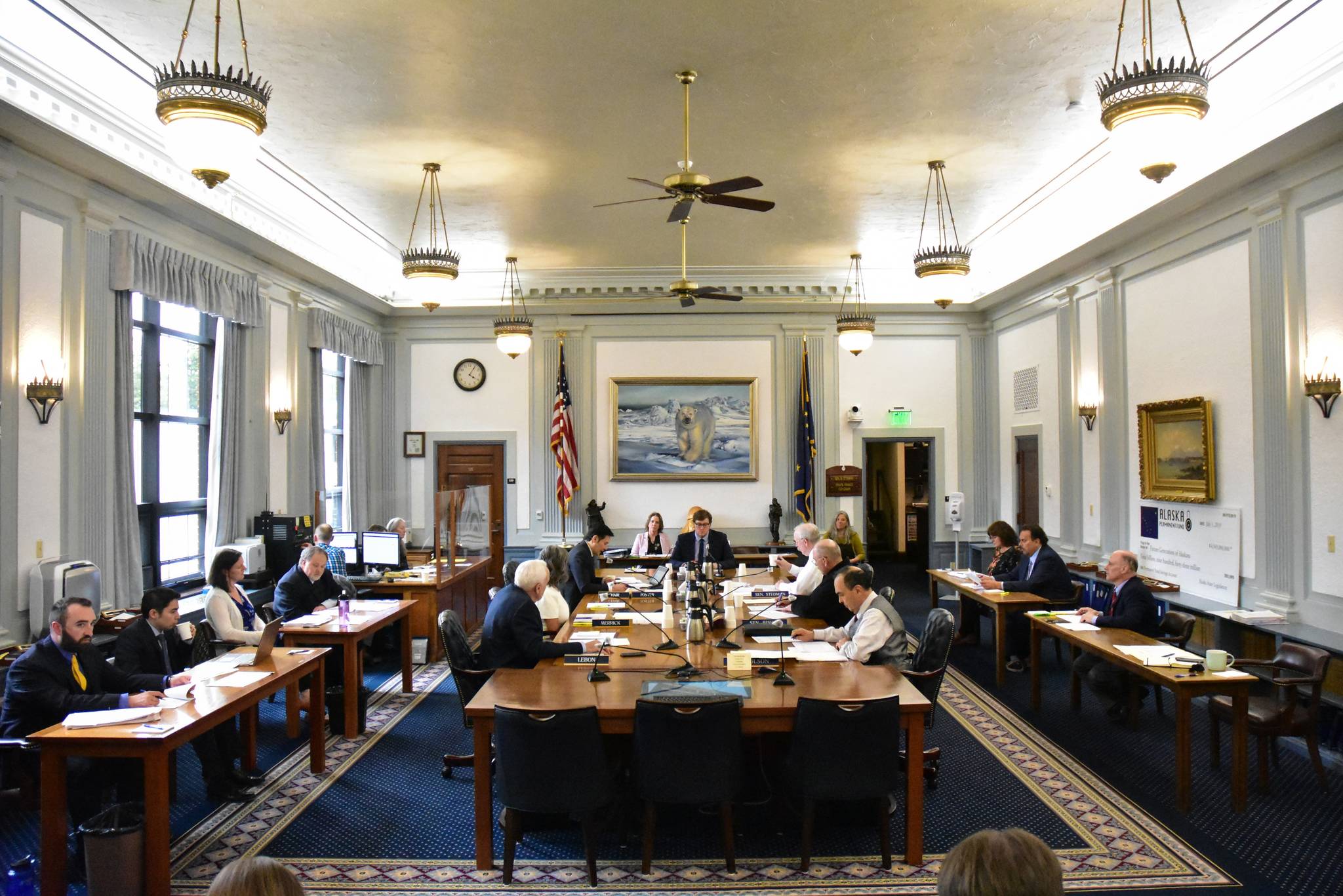Official talks on the state’s budget were pushed back a day after the committee negotiating the state’s budget bill rescheduled a meeting provisionally set for Tuesday. Lawmakers on a bicameral conference committee are in the process of negotiating a comprehensive budget bill and several meetings have already been rescheduled.
At the committee’s last meeting on May 27, committee chair Rep. Neal Foster, D-Nome, said the committee would meet sometime in the afternoon, though he didn’t give a time and noted the scheduling was subject to change.
The next meeting was scheduled for Wednesday, according to Paul Labolle, legislative staff to Foster. Currently, the committee is planning on taking up the Alaska Department of Fish and Game budget but more items may get added as negotiations with the Senate continue, Labolle said in an email Tuesday.
Negotiations have been delayed by deep divisions within the Legislature over how to proceed with the state’s budget. The budget currently allocates an Alaska Permanent Fund dividend payout of $2,300, following a formula endorsed by Gov. Mike Dunleavy. But that amount would require the state to overdraw the annual 5% of market value draw from the Earnings Reserve Account of the permanent fund, a proposal with opposition in both legislative bodies and political parties.
[Divided Legislature takes holiday break]
Committee members also intend to include a provision to reverse a sweep of state accounts at the end of the fiscal year, but that requires a high vote threshold. The vote to reverse the fund sweep and continue funding several state programs needs two-thirds in both bodies, and no caucus in the Legislature can guarantee that many votes.
Looming over the process is a second special session called for August. Some lawmakers have said they’ll be willing to compromise if a comprehensive solution to the state’s fiscal deficit can be reached in that session, but have also expressed skepticism that it’s possible. But several conservative lawmakers, including the governor, have given up the demand that the state follow a formula put into law in the 1980s and many veteran lawmakers have said there appears to be more willingness than ever to compromise.
The state’s fiscal year ends July 1, and if a budget isn’t passed and signed by the governor by then hundreds of state positions will automatically be cut. The state must notify its employees 10 days before that deadline, even if lawmakers are still negotiating the budget. The special session ends June 19. Dunleavy spokesperson Corey Allen Young previously told the Empire the administration believes if the budget is passed by then it can be signed before those notices go out.
Contact reporter Peter Segall at psegall@juneauempire.com. Follow him on Twitter at @SegallJnuEmpire.

